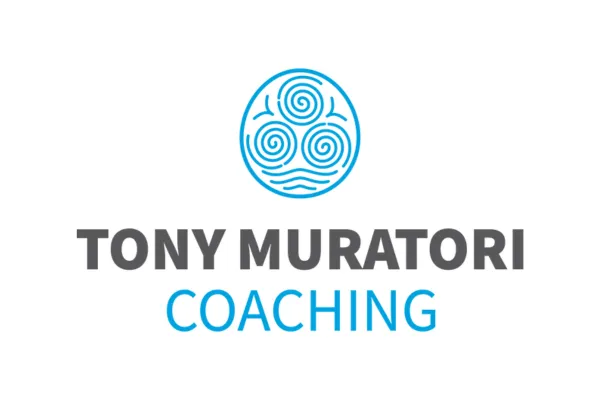
Sleep: Recovery, Regeneration – The Ultimate Medicine
There is nothing that will influence your health and overall wellbeing more profoundly than sleep. There are a number of potentially fatal diseases and conditions that can develop from a lack of sleep. Many of the things you do during the day directly affect your sleep at night. In this article, we will explore why sleep is such a powerful medicine and look at essential concepts that you can implement which will enable you to get better and deeper sleep, radically changing your health and your life. Let’s dive in!!
When we are asleep, the body goes through four stages of repair and regeneration. If any of these stages are compromised, we will start to see rapid degeneration in our physiology.
Stage 1
It occurs just as you are falling asleep. It is considered light sleep and is short in duration. In this stage, your brain waves begin to slow down, and your mind starts to disengage from the day’s activities. Physiologically, your heartbeat, breathing, and eye movements slow down.
Stage 2
A transition stage between light and deep sleep. In this phase, your body temperature begins to drop and the brain wave activity also continues to slow down.
Stage 3
We reach the period of deep sleep. This phase is vital to feeling rested in the morning. It is also necessary for the body to undergo its regenerative processes, recovery, and growth. Stage 3 plays a role in bolstering the immune system, and it is important for memory consolidation, emotional processing, creativity and insight. In deep sleep, the heartbeat and breathing are at their lowest rates, and your muscles are at their maximal relaxation. If you’re disturbed while in this sleeping stage, it may be difficult to wake up.
Stage 4
What we call REM sleep. This phase first occurs about 90 minutes after falling asleep, and it’s called REM because of the rapid eye movements that happen during this stage. In this part of sleep, your brain wave activity increases, and this is when dreaming occurs. Each REM cycle during one night’s sleep increases in duration each time. While in REM, breathing and heart rate are at levels similar to waking; however, the muscles are temporarily paralysed. As we age, we spend less time in REM sleep.
We cycle through each of these stages 4-5 times throughout the night, depending on how long you sleep. The longer you are able to stay asleep, the more time you’ll spend in deep sleep, which is the most important part of this process. When sleep gets cut short, then the body’s regenerative processes are also cut short.
Deep Sleep is Vital for Health + Recovery.
Many physiological changes occur when we’re asleep. While all stages of sleep are important, deep sleep is the most vital for brain health and brain function. Deep sleep helps the brain create and store new memories, and it improves the brain’s ability to collect and recall information. In this stage, the brain is able to recover from a day of thinking and replenish its energy. The deep phases of sleep also play a role in hormone balance. It is at this time that the pituitary gland secretes human growth hormone, which helps the body tissues grow and regenerate cells. For this reason, this stage of sleep is also called the healing phase because of the growth and tissue repair that happens at this time.
Lack of sleep is associated with a number of serious and life-threatening conditions. If you miss any stage of your circadian rhythms or stages of sleep in any way, you will experience a myriad of negative health consequences. We could experience issues with memory which could become chronic and lead to neurodegenerative diseases. We could have emotional issues such as depression, anxiety, or mood swings. Fragmented or disturbed sleep can also weaken the innate and adaptive immune systems. Poor sleep has also been associated with high blood pressure and cardiovascular disease, and it’s been linked to a risk factor for diabetes, weight gain, and low sex drive.
The negative effects of lack of sleep can be seen in every tissue in the human body.
– Dr. Peter Cummings
About 15% during sleep, and the body goes into a fat-burning phase. Growth hormone peaks during our early repetitions of REM sleep; it helps build muscle and repair tissues. If we don’t have this peak in growth hormone, then the tissues will not regenerate. Cortisol peaks later in sleep; it elevates the blood glucose levels, getting you ready to wake up and have the energy to move your body. When we don’t sleep well, these hormone patterns are altered.
We see a number of diseases and negative health outcomes related to free cortisol, which can happen as a result of poor sleep. These include lowered immune function, increased blood pressure, belly fat, cardiovascular disease, chronic inflammation, memory loss, and cognitive decline.
The dysregulation of these hormones can also lead to problems with the sympathetic nervous system. We also see alcohol as another factor that can negatively affect sleep. Proper sleep also helps us with inflammation and recover. When your sleep deprived, it can heighten the inflammation and immune responses, which can lead to chronic inflammation.
Chronic inflammation is a root cause for many diseases such as dementia, stroke, and heart disease. The longer you go without healthy sleep, the greater the inflammation in the body; and the more chronic the sleep deprivation, the more consequential the immune response damage.
Decreased sleep also leads to glucose intolerance and insulin insufficiency. Both of these conditions have consequences on all of our organ systems beyond Type 2 Diabetes. Lack of sleep leaves deposited protein build up in the brain that can lead to cognitive impairments, dementias and vascular diseases.
Many people with neurodegenerative disease also have sleep issues, and it is now becoming apparent that lack of sleep is a cause of the disease and not simply a consequence. After one night of poor sleep, there are excess proteins present on the hippocampus. If someone then returns to good sleep, the body can clear these extra proteins.
However, if the sleep loss becomes chronic, the proteins continue to accumulate in the hippocampus, which has negative consequences for memory. Inflammation is not only underlying neurodegenerative diseases but also neuropsychology issues such as depression and anxiety.
How Much Sleep Do You Need?
About 15-25% of sleep time is spent in deep sleep. The average healthy adult gets 1-2 hours of deep sleep per 8 hours of nightly sleep. You have to go through all the stages of sleep without interruption. While all the stages of sleep are important, deep sleep is the most essential for feeling rested and staying healthy. If you’re sleeping 7-9 hours a night but still wake up tired, it could mean that you aren’t getting the right amount of deep sleep.
What Can You Do to Sleep Better?
Here are 10 top tips to help improve your quality of sleep.
Establish regular sleep + wake times so you have a routine. This helps your body know what’s coming and to prepare accordingly.
Limit alcohol and caffeine. If you drink caffeine, try not to drink any after 1pm. If you drink alcohol, definitely limit it in the few hours before bed. As alcohol metabolizes, it rebounds in your sympathetic nervous system and leads to sleep fragmentation (broken sleep). Alcohol is also a diuretic and leads to dehydration. You lose a lot of water from your system and water is very important for your tissues and overall health. Staying hydrated will help protect your sleep.
Keep the bedroom cool. Cooler temperatures are more conducive for sleep.
No screens within 3 hours before bed. The blue light affects the brain and your body’s overall ability to relax and can cause the release of excitatory neurotransmitters.
Regular exercise can help improve the quality of sleep; however, avoid doing a strenuous work after 4pm, as this will interfere with the release of the anabolic repair hormones.
A whole food diet. Avoid all processed and non or packaged foods and incorporate organic, locally-grown food when possible.
Watch what you eat before bed. If you have a big sugar intake before you go to bed, you alter the entire sleep process and the regenerative rhythms trying to happen in the sleep cycle. It’s also best to eat your last meal between 6 and 6.30pm before bed.
Stay hydrated. When properly hydrated, we keep more water in our tissues and flush out metabolic waste. So you know how much water you need to drink every day multiply your weight by 0.033 and this give the amount of water in litres you require on a daily basis.
No work in the bedroom. Try to keep activities in the bedroom relegated to relaxation, sleep, and sex.
Practice mindfulness + gratitude at the beginning and the end of the day.
What About EMF’s And Sleep?
Today, more than ever in the history of man, our bodies are constantly exposed to EMFs. The body is very EMF-sensitive; it leads to such conditions as chronic fatigue syndromes, chronic pain syndromes, and autoimmune conditions. Because what’s happening in electromagnetic field exposure is similar to inflammation.
Simply put, inflammation disrupts the waveforms at which our electromagnetic field resonates. It’s important to consider all the things that are influencing your environment, instead of isolating what problem or issues as if it isn’t connected to other things around you.
Grounding is a great way to reduce the EMF around you. Grounding neutralizes the inflammatory cascades within your body as well as any externally approaching EMF. When you ground the skin, it creates a protective field against EMF. I recommend going barefoot when you can to ground yourself instantly. You can also purchase grounding sheets for your bed at night.
The Bottom line is sleep plays a key role in both your physical and mental health. The benefits of a good night’s rest are endless, just as the negative complications from loss of sleep are. You need to be healthy and vital if you’re going to be at your best, and sleep can help you not only transform your health, but ultimately lead to a more happy and fulfilling life.
Did you know that Sleep is one of the Six Foundation Principles of Health? If you're interested in your health then why not sign up for my newsletter and get more health tips and subscriber only special offers straight to your inbox.


